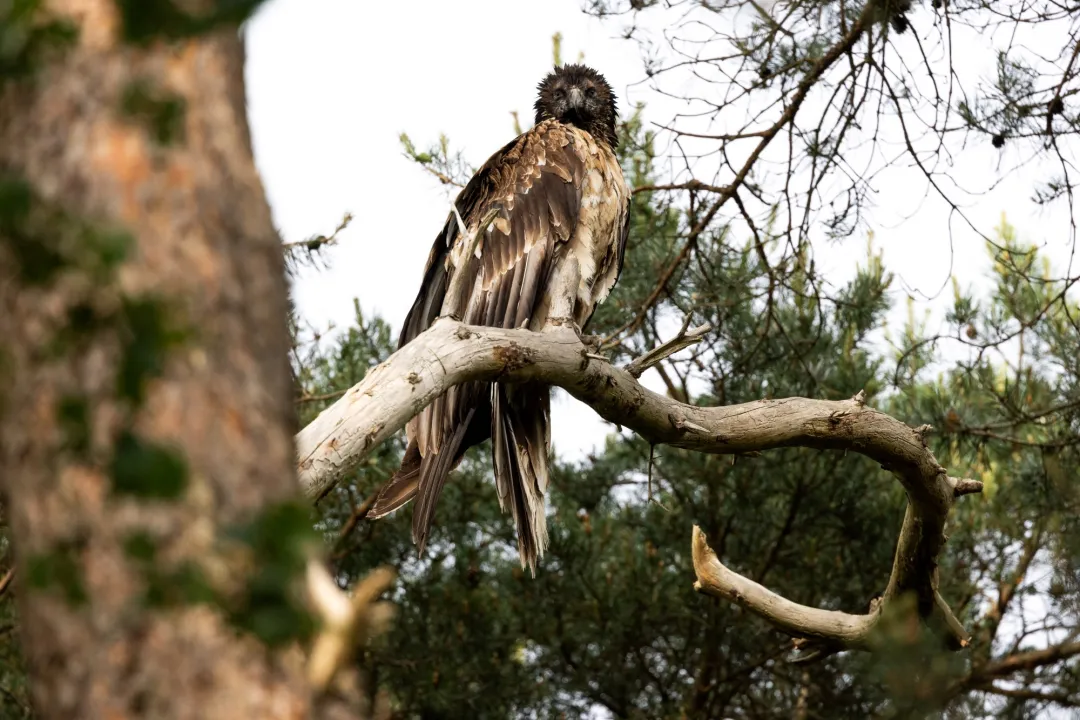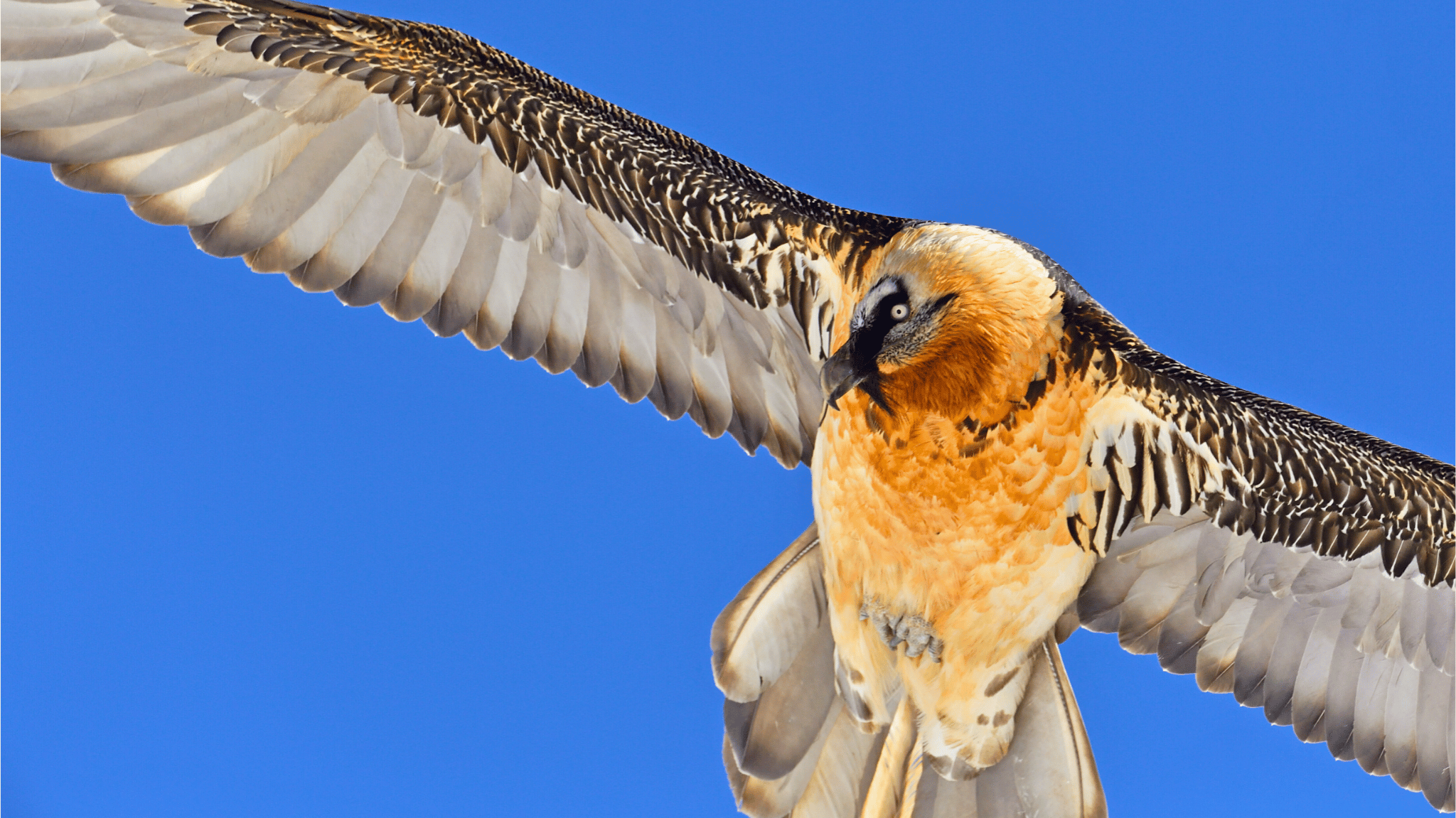
Following the successful public launch of the bearded vulture reintroduction programme in the Maestrazgo region of Valencia, Spain at the end of April, the first releases of captive-bred young bearded vultures are set to take place today (Wednesday 30 May) at 12pm.
The first-ever nestlings to be released today in the region will come – as do all the bearded vultures from our reintroduction projects – from the Bearded Vulture captive-breeding network/European Endangered Species Programme (EEP), we coordinate. The young vultures will be released with the ‘hacking’ method, where weeks old nestlings are put in a naturally-looking platform in the wild, from where they will fledge in a few weeks.

A hacking site was built in a protected area near Tinença de Benifassà. Both chicks will be put together in an artificial enclosed surrogate nest where they will be fed (without any human contact) and looked after from a monitoring point in the distance. As they near the age of fledging they start to exercise the wings, until they finally jump out to their first flight.
The Maestrazgo region was historically a breeding site for bearded vultures and is regularly visited by individuals released in Andalusia. This new reintroduction programme aims to establish a wild breeding population to bridge the populations in the Pyrenees and Andalusia, similar to the LIFE GypConnect project that connects populations in the Pyrenees and the Alps.
The project is led by the Generalitat of Valencia, in collaboration with the Autonomous Communities from Aragón and Catalonia, the Spanish Ministry of Agriculture, Fish, Food and Environment and the VCF.
It marks another step towards one of our big objectives – the restoration of the bearded vulture across its former range in Europe.



